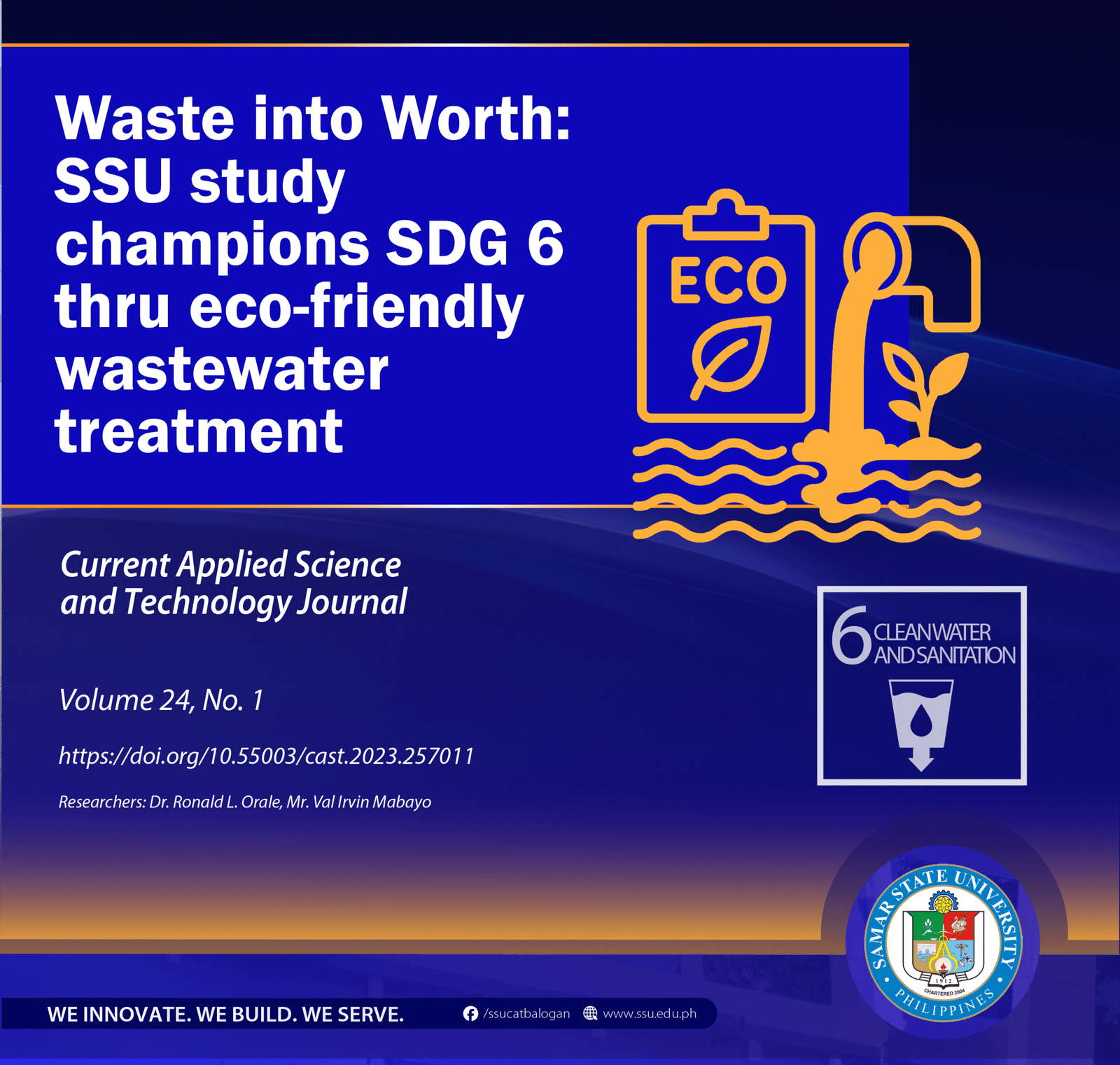CATBALOGAN CITY, Philippines—Samar State University (SSU) supports the Sustainable Development Goal 6 (Clean Water and Sanitation) with the study, “Agricultural-based Biomass as an Efficient Adsorbent in the Removal of Dyes in Dye-contaminated Wastewater: A Mini Review,” published in the Scopus-indexed journal, Current Applied Science and Technology.
The study was authored by SSU professor, Dr. Ronald L. Orale, together with Mr. Val Irvin Mabayo of the University of Science and Technology of Southern Philippines.
Published in the 24th Volume, No. 1 of the said journal, this study examined various reports on the removal efficiency and adsorptive capacity of different agricultural biomass adsorbents. The findings offer crucial insights into the potential of agricultural biomass adsorbents to address the issue of dye-contaminated wastewater and their role in promoting sustainable development.
You may read the study in full through this link: https://doi.org/10.55003/cast.2023.257011
Apart from SDG 6, this scientific contribution also supports SDG 12 (Responsible Consumption and Production) for encouraging the use of agricultural waste as adsorbents, SDG 9 (Industry, Innovation and Infrastructure) for demonstrating innovative applications of biomass in wastewater management, SDG 13 (Climate Action) for encouraging a climate-conscious water management strategy, and SDG 14 (Life Below Water) for promoting the mitigation of aquatic pollution from dye-contaminated wastewater.

